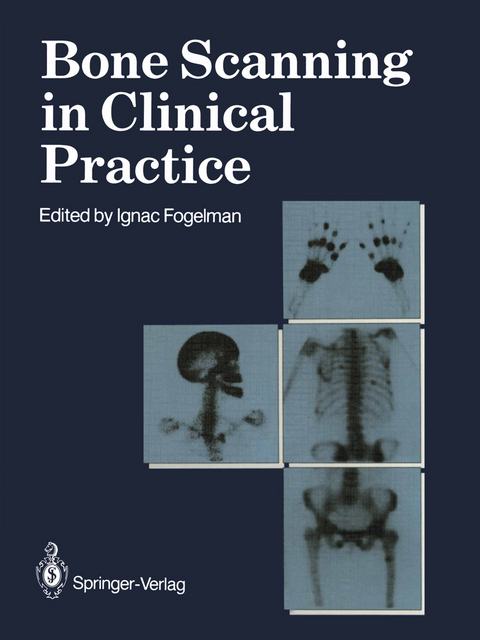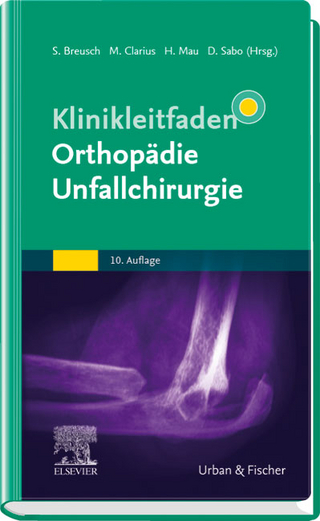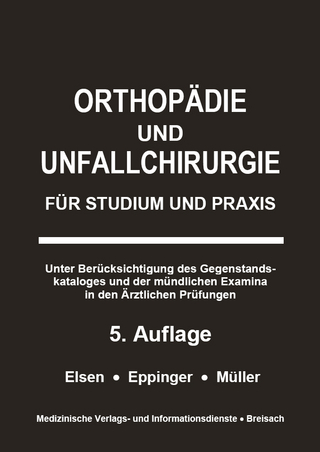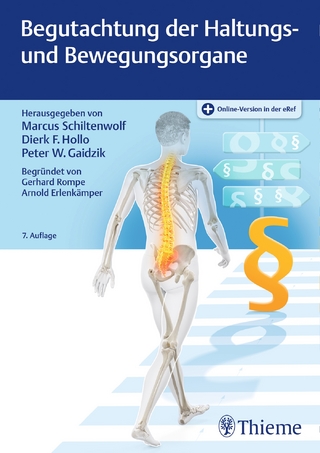
Bone Scanning in Clinical Practice
Springer London Ltd (Verlag)
978-1-4471-1409-3 (ISBN)
The most frequently requested investigation in any nuclear medicine department remains the technetium-99m (99mTc)-labelled diphosphonate bone scan. Despite rapid advances in all imaging modalities. there has been no serious challenge to the role of bone scanning in the evaluation of the skeleton. The main reason for this is the exquisite sensitivity of the bone scan for lesion detection. combined with clear visualisation of the whole skeleton. In recent years several new diphosphonate agents have become available with claims for superior imaging of the skeleton. Essentially. they all have higher affinity for bone. thus allowing the normal skeleton to be visualised all the more clearly. However. as will be dis cussed. this may occur at some cost to the principal role of bone scanning. lesion detection. The major strength of nuclear medicine is its ability to provide functional and physiological information. With bone scanning this leads to high sensitivity for focal disease if there has been any disturbance of skeletal metabolism. However. in many other clinical situations. and particularly in metabolic bone disease. more generalised alteration in skeletal turnover may occur. and quantitation of diphosphonate uptake by the skeleton can provide valuable clinical information.
1 The Bone Scan—Historical Aspects.- Bone Scanning with Strontium-85 and Fluorine-18.- of 99mTc Phosphate.- References.- 2 99mTc Diphosphonate Uptake Mechanisms on Bone.- Reduction of 99mTcO4-.- Calcium Content of Tissues.- Diphosphonate Structure.- Diphosphonate Chain Length.- Mechanism of 99mTc Diphosphonate Adsorption on Bone.- References.- 3 The Normal Bone Scan.- Technical Considerations.- Normal Appearances.- Conclusion.- References.- 4 99mTc Diphosponate Bone-scanning Agents.- Properties Required of a Bone-scanning Agent.- 99mTc Diphosphonate Bone-scanning Agents.- Discussion.- References.- 5 Bone Scanning in Metastatic Disease.- Appearances of Metastases on the Bone Scan.- Significance of Bone Scan Abnormalities in the Cancer Patient.- Indications for Bone Scanning in Extraosseous Malignancy.- Bone Scanning in Individual Tumours.- References.- 6 The Bone Scan in Primary Bone Tumours and Marrow Disorders.- Primary Bone Tumours.- Marrow Disorders.- References.- 7 The Bone Scan in Metabolic Bone Disease.- Why is the Bone Scan Abnormal?.- Bone Scan Appearances.- References.- 8 The Bone Scan in Paget’s Disease.- Bone Scan Appearances.- Differential Diagnosis.- Comparison of Bone Scanning and Radiography.- Anatomical Distribution of Lesions.- Correlation of Symptoms with Sites of Activity on Bone Scan.- Evaluation of Treatment.- Clinical Use of Bone Scanning.- References.- 9 The Role of Bone Scanning, Gallium and Indium Imaging in Infection.- Radiopharmaceuticals and Methods.- Acute Osteomyelitis.- Diagnosis of Septic Arthritis.- Diagnosis of Infected Prosthetic Joint.- Chronic Osteomyelitis.- Role of Single Photon Emission Computed Tomography of Skeleton.- References.- 10 The Bone Scan in Traumatic and Sports Injuries.- Stress Fractures and Periosteal Injury.-Shin Splints and Enthesopathy.- Covert Fractures.- Traumatic Fractures.- Delayed Union and Non-union.- Radionuclide Arthroscopy.- Detection of Skeletal Muscle Injury.- References.- 11 The Bone Scan in Arthritis.- Synovitis.- Sacroiliitis.- Osteoarthritis.- Transient (Toxic) Synovitis of the Hip.- Reflex Sympathetic Dystrophy Syndrome.- Regional Migratory Osteoporosis.- Trochanteric Bursitis.- Plantar Fasciitis (Calcaneal Periostitis).- References.- 12 The Bone Scan in Avascular Necrosis.- Steroid-induced Osteonecrosis.- Drug-induced Osteonecrosis.- Idiopathic Osteonecrosis.- Osteonecrosis Following Trauma.- Caisson Disease.- Legg-Perthes Disease.- Slipped Capital Femoral Epiphysis.- Sickle Cell Disease.- Gaucher’s Disease.- Radiation Osteonecrosis.- Frostbite.- Electrical Burns.- Juvenile Kyphosis.- Bone Graft Revascularisation.- References.- 13 Orthopaedic Applications of Single Photon Emission Computed Tomographic Bone Scanning.- Principles.- Techniques.- Clinical Applications.- Summary and Conclusions.- References.- 14 The Bone Scan in Paediatrics.- Radioisotopes.- Clinical Indications.- References.- 15 Soft Tissue Uptake of Bone Agents.- Pathophysiology.- Bone Scan Appearances.- References.- 16 Quantitative 99mTc Diphosphonate Uptake Measurements.- Factors Influencing 99mTc Diphosphonate Uptake Measurements.- Methods of Quantitation.- Summary.- References.- 17 Measurements of Bone Mineral by Photon Absorptiometry.- Clinical Relevance of Bone Mass.- Review of Different Techniques for Measuring Bone Mass.- Single Photon Absorptiometry for the Evaluation of Cortical Bone in the Appendicular Skeleton.- Dual Photon Absorptiometry for the Evaluation of Mineral in the Spinal Bone.- Quantitative Computed Tomography.- Clinical Applications of Photon AbsorptiometryMethods.- References.
| Zusatzinfo | XVIII, 260 p. |
|---|---|
| Verlagsort | England |
| Sprache | englisch |
| Maße | 210 x 280 mm |
| Themenwelt | Medizinische Fachgebiete ► Chirurgie ► Unfallchirurgie / Orthopädie |
| Medizinische Fachgebiete ► Innere Medizin ► Rheumatologie | |
| Medizin / Pharmazie ► Medizinische Fachgebiete ► Onkologie | |
| Medizinische Fachgebiete ► Radiologie / Bildgebende Verfahren ► Nuklearmedizin | |
| ISBN-10 | 1-4471-1409-4 / 1447114094 |
| ISBN-13 | 978-1-4471-1409-3 / 9781447114093 |
| Zustand | Neuware |
| Informationen gemäß Produktsicherheitsverordnung (GPSR) | |
| Haben Sie eine Frage zum Produkt? |
aus dem Bereich


